Life
Sign up for our newsletter
We summarize the week's scientific breakthroughs every Thursday.
-
 Humans
HumansMoon bounces, bad spider leaders and more reader feedback
Readers debate faith's role in evolution, compare politicians to spiders and more.
-
 Chemistry
ChemistryWanted: Crime-solving bacteria and body odor
Forensic investigators are moving past old-school sleuthing to analyze microbes and odors that tell a more complete story, while pursuing ways to enhance traditional tools as well.
By Meghan Rosen -
 Health & Medicine
Health & MedicineBlood test can predict breast cancer relapse
Blood tests for breast cancer DNA can predict relapse.
-
 Animals
AnimalsTwin pandas look forward to growth spurts
The surviving panda twin born at the National Zoo last weekend will undergo DNA tests to discover paternity.
By Meghan Rosen -
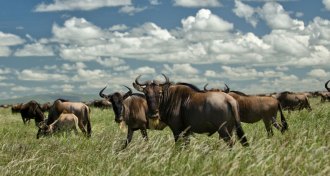 Animals
AnimalsA world of mammal diversity has been lost because of humans
Humans have eradicated large mammal biodiversity in most regions of the globe, a new study finds.
-
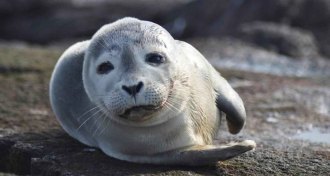 Health & Medicine
Health & MedicineVirus closely related to hepatitis A discovered in seals
Scientists have discovered a relative of the hepatitis A virus in seals.
-
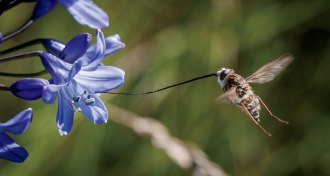 Animals
AnimalsLong-tongued fly sips from afar
Long-tongued flies can dabble in shallow blossoms or reach into flowers with roomier nectar tubes.
By Susan Milius -
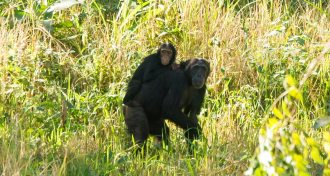 Animals
AnimalsChimps keep numbers high as forest losses mount
African apes show surprising resilience in face of forest destruction.
By Bruce Bower -
 Animals
AnimalsChimps keep numbers high as forest losses mount
African apes show surprising resilience in face of forest destruction.
By Bruce Bower -
 Neuroscience
NeuroscienceAltered protein makes mice smarter
By tweaking a single gene, scientists have turned average mice into supersmart daredevils.
-
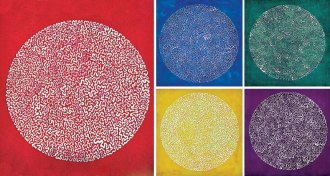 Genetics
GeneticsThe human genome takes shape and shifts over time
Scientists are mapping and modeling the 4-D human genome to get beyond its linear structure.
-
 Animals
AnimalsA naturalist recounts birds’ lives in the Scottish Highlands
In Gods of the Morning, a naturalist chronicles how birds and other wildlife withstand the changing seasons in the Scottish Highlands
By Sid Perkins